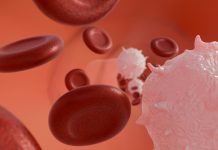The NHS England is rolling out new treatments for patients who suffer from rare cancer
This comes months after the NHS announced the deal for the beta-thalassaemia gene-editing therapy, Casgevy, offering new hope for people with rare genetic blood disorders.
Tebentafusp new treatment for melanoma patients
Tebentafusp, is a new drug approved for patients with uveal melanoma, an aggressive and often fatal form of eye cancer.
Melanoma is a rare cancer that affects the eye and, if it spreads to other organs, has historically been very difficult to treat, with survival rates remaining low once the cancer becomes metastatic. For patients whose cancer cannot be surgically removed or has spread, tebentafusp offers a new option.
The drug works by stimulating the body’s immune system to target and destroy cancer cells, improving survival chances for patients with metastatic uveal melanoma.
In clinical trials, tebentafusp showed the potential to extend survival by an average of five months compared to standard treatments, with the survival rate after three years increasing from 18% to 27%.
With its approval from the National Institute for Health and Care Excellence (NICE), the NHS is fast-tracking the availability of this drug through its Cancer Drugs Fund, ensuring that hundreds of patients across England will have access to this cutting-edge treatment.
Tebentafusp is the first treatment to use a unique mechanism that bridges cancer cells and the immune system, allowing the body to fight back more effectively against this difficult-to-treat cancer.
Casgevy: Gene-editing breakthrough for thalassaemia
As well as offering hope to cancer patients, the NHS is also set to offer a revolutionary gene-editing therapy for individuals with beta-thalassaemia, a severe genetic blood disorder.
This condition requires frequent blood transfusions, which can significantly impact quality of life. The approved treatment, Casgevy, uses CRISPR gene-editing technology to modify the DNA of patients’ bone marrow stem cells, enabling them to produce healthy haemoglobin and eliminating the need for regular transfusions.
Casgevy is a one-time treatment that offers the potential for a cure and has already shown extraordinary results in clinical trials, where 93% of patients did not need a transfusion for at least a year following treatment.
This therapy is available to older children and adults aged 12 and over who have transfusion-dependent beta-thalassaemia, with up to 460 patients in England potentially eligible for the treatment. Casgevy is part of the NHS’s commitment to becoming a global leader in advanced therapies and is offered at seven specialist centres nationwide.
The impact of advanced therapies
Both of these treatments show the NHS’s growing commitment to providing innovative, cutting-edge therapies for conditions that previously had few options. These treatments also show the importance of the UK’s life sciences sector, home to world-leading research and development.
Tebentafusp, for example, was developed by UK-based company Immunocore, and the gene-editing therapy Casgevy is manufactured in the UK.
The NHS ensures that patients receive the most up-to-date, effective care by offering access to such advanced treatments. These therapies improve survival rates and enhance quality of life, making a significant difference for patients facing serious health challenges. As the NHS continues to expand access to life-changing treatments, it demonstrates how innovation in medicine can have a huge and lasting impact on patient care.
The availability of these therapies shows a significant milestone for the NHS, which continues to expand access to life-changing treatments for patients facing serious and often life-threatening health challenges.
As these treatments roll out, they offer new hope and a reminder of how innovation in medicine can impact patient care.











